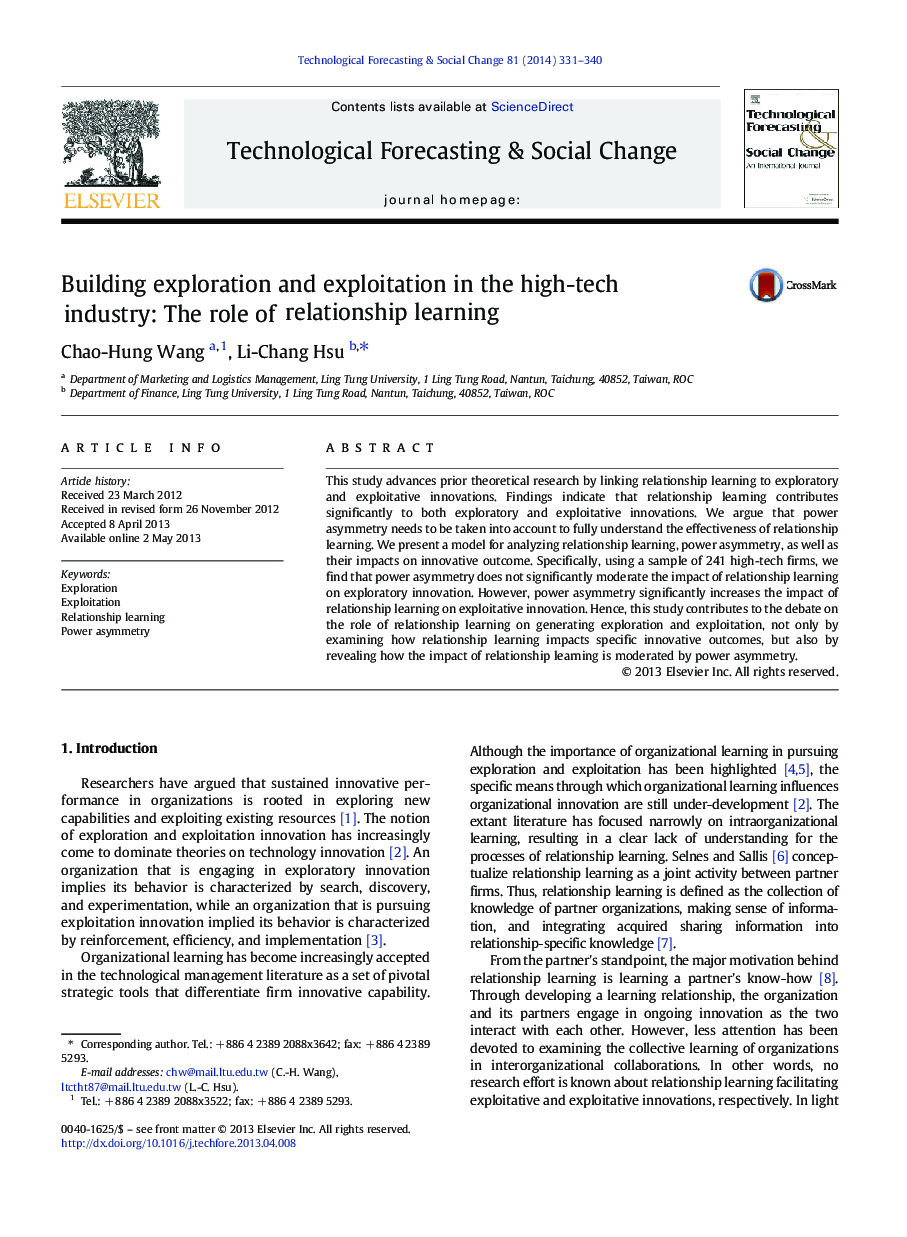| Article ID | Journal | Published Year | Pages | File Type |
|---|---|---|---|---|
| 896545 | Technological Forecasting and Social Change | 2014 | 10 Pages |
•This study advances prior theoretical research by linking relationship learning to exploratory and exploitative innovations.•Relationship learning contributes to both exploratory and exploitative innovations.•Power asymmetry increases the impact of relationship learning on exploitative innovation.•This study reveals how the impact of relationship learning is moderated by power asymmetry.
This study advances prior theoretical research by linking relationship learning to exploratory and exploitative innovations. Findings indicate that relationship learning contributes significantly to both exploratory and exploitative innovations. We argue that power asymmetry needs to be taken into account to fully understand the effectiveness of relationship learning. We present a model for analyzing relationship learning, power asymmetry, as well as their impacts on innovative outcome. Specifically, using a sample of 241 high-tech firms, we find that power asymmetry does not significantly moderate the impact of relationship learning on exploratory innovation. However, power asymmetry significantly increases the impact of relationship learning on exploitative innovation. Hence, this study contributes to the debate on the role of relationship learning on generating exploration and exploitation, not only by examining how relationship learning impacts specific innovative outcomes, but also by revealing how the impact of relationship learning is moderated by power asymmetry.
